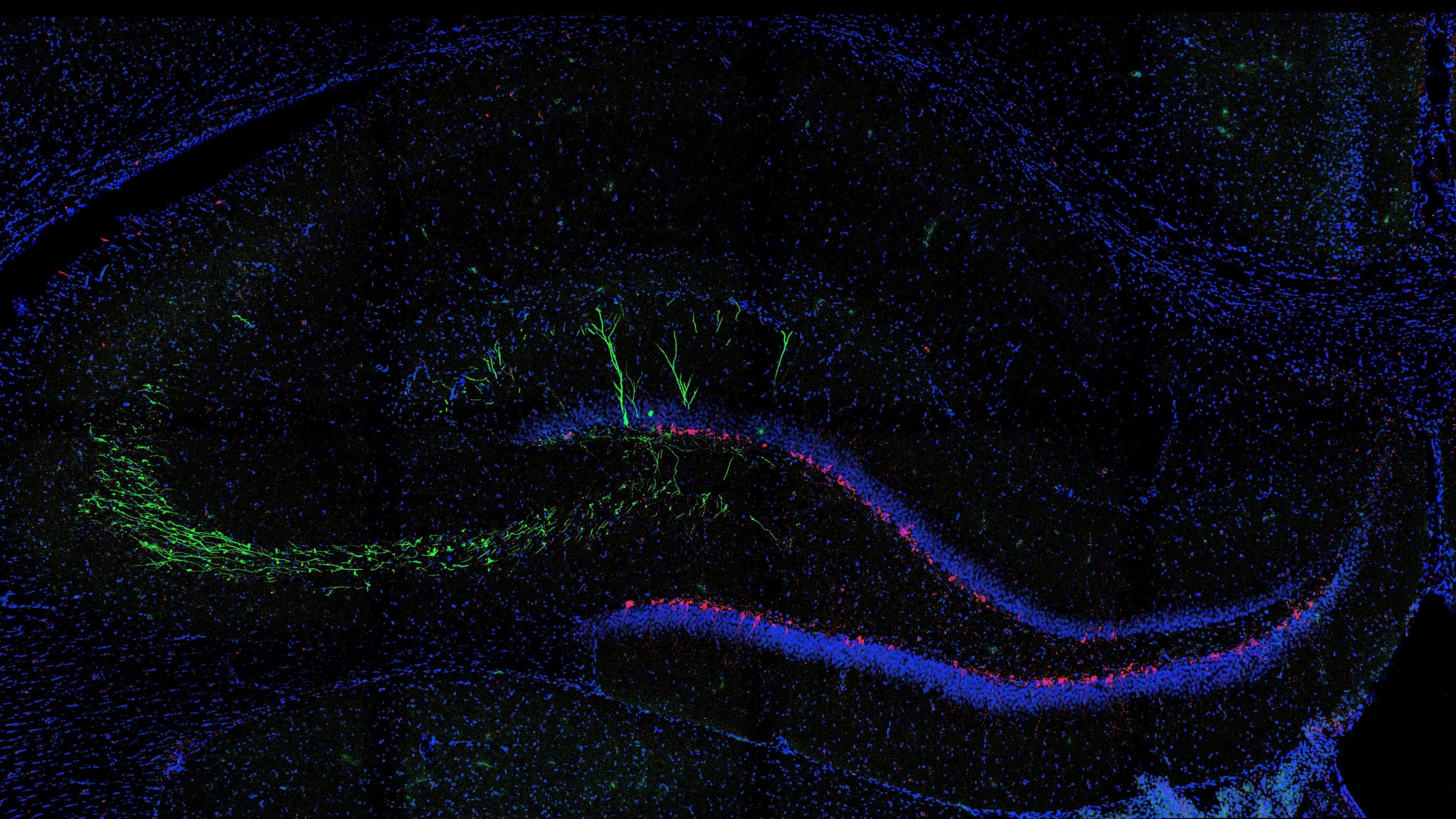
Placenta
During development, when most of the brain is formed, there is a specific blueprint to follow to guarantee proper brain function throughout life. Any insults, such as environmental challenges, can lead to digressions from this blueprint. As such, brain development is a phase of heightened sensitivity to external challenges. Changes in maternal diet and microbiome have been shown to alter brain development. In adulthood, unbalanced diets and changes in the microbiome can also alter brain structure and function.
The short-term goal of my research is to identify fundamental mechanisms of how maternal diet can affect the brain during development. More specifically, my lab will examine how unbalanced maternal diets affect neurogenesis during development and the mesocorticolimbic system (the brain’s reward circuit) of both sexes and if they have long-term consequences for the offspring’s behaviour and physiology. We also examine the roles of the maternal microbiome and the placenta in mediating the effects of the early-life environment on fetal development.

Newborn neurons
Neurons are special cells that we need to perceive and react to the outside world. Our brain is made up of 100 billion neurons. We need them to process information and regulate our bodies. In mammals, new neurons can be generated throughout life in a particular brain location called the hippocampus. These new neurons influence an organism’s learning, memory, mood, and decision-making because newly-born neurons can do more tricks than old neurons. The formation of new neurons is called neurogenesis. Neurogenesis helps the organism to better adapt to a changing environment. The long-term focus of my research program is the role of hippocampal neurogenesis in behaviour and the interplay of neurogenesis with the mesocorticolimbic system.
To read what I did before I started my lab at UPEI, please visit www.desireeseib.com